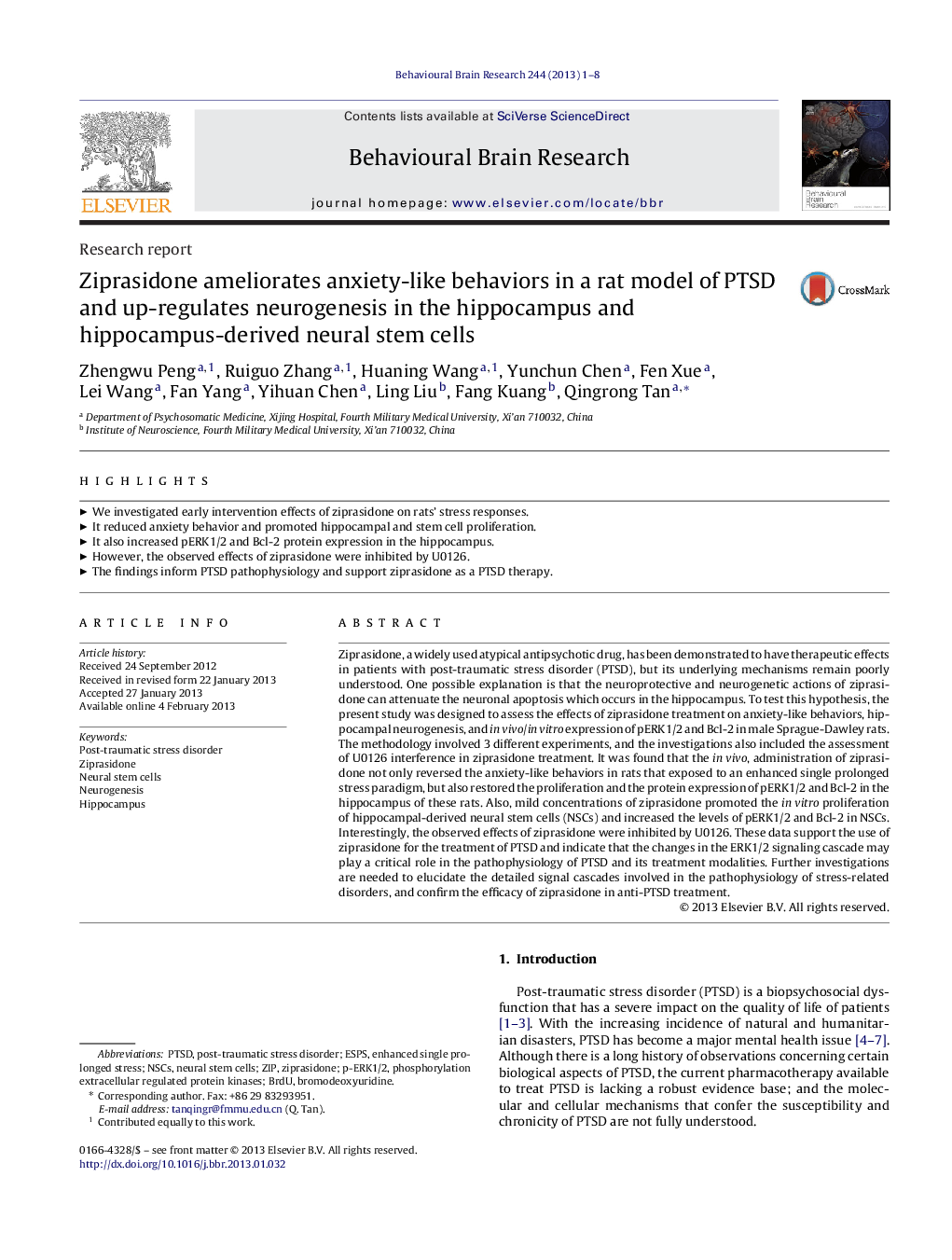| Article ID | Journal | Published Year | Pages | File Type |
|---|---|---|---|---|
| 4312724 | Behavioural Brain Research | 2013 | 8 Pages |
Ziprasidone, a widely used atypical antipsychotic drug, has been demonstrated to have therapeutic effects in patients with post-traumatic stress disorder (PTSD), but its underlying mechanisms remain poorly understood. One possible explanation is that the neuroprotective and neurogenetic actions of ziprasidone can attenuate the neuronal apoptosis which occurs in the hippocampus. To test this hypothesis, the present study was designed to assess the effects of ziprasidone treatment on anxiety-like behaviors, hippocampal neurogenesis, and in vivo/in vitro expression of pERK1/2 and Bcl-2 in male Sprague-Dawley rats. The methodology involved 3 different experiments, and the investigations also included the assessment of U0126 interference in ziprasidone treatment. It was found that the in vivo, administration of ziprasidone not only reversed the anxiety-like behaviors in rats that exposed to an enhanced single prolonged stress paradigm, but also restored the proliferation and the protein expression of pERK1/2 and Bcl-2 in the hippocampus of these rats. Also, mild concentrations of ziprasidone promoted the in vitro proliferation of hippocampal-derived neural stem cells (NSCs) and increased the levels of pERK1/2 and Bcl-2 in NSCs. Interestingly, the observed effects of ziprasidone were inhibited by U0126. These data support the use of ziprasidone for the treatment of PTSD and indicate that the changes in the ERK1/2 signaling cascade may play a critical role in the pathophysiology of PTSD and its treatment modalities. Further investigations are needed to elucidate the detailed signal cascades involved in the pathophysiology of stress-related disorders, and confirm the efficacy of ziprasidone in anti-PTSD treatment.
► We investigated early intervention effects of ziprasidone on rats’ stress responses. ► It reduced anxiety behavior and promoted hippocampal and stem cell proliferation. ► It also increased pERK1/2 and Bcl-2 protein expression in the hippocampus. ► However, the observed effects of ziprasidone were inhibited by U0126. ► The findings inform PTSD pathophysiology and support ziprasidone as a PTSD therapy.
